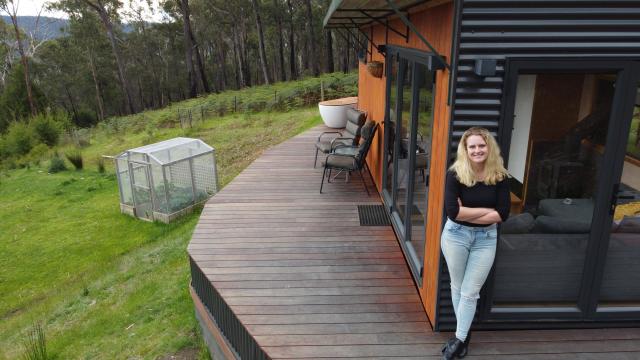
By Callum Ludwig
A Healesville resident is headed abroad to attend the 2022 United Nations Climate Change Conference (COP27) in Egypt and submit her proposal for a National Rehydration Strategy to the UN.
Elly Hanrahan was recently awarded the six-month Global Voices Freya Phillips National Scholarship to help link young people with key decision-makers and will be joined at COP27 by three other young scholars.
Ms Hanrahan said she really believes in the rehydration methodology and that it could give us a chance to start drawing carbon down in a holistic way.
“From my experience, just minimising emissions will not be enough, we really need to be doing something on the ground, restoring our ecosystems because they’re completely falling apart. It’s not a new concept and has been done over overseas quite a bit,” she said.
“In Australia, there’s no visibility on holistically managing land to hold water for longer. Since colonisation, we’ve implemented a whole suite of drainage projects, which are completely unsuitable to the Australian climate and the ecosystems that have evolved and adapted here.”
Ms Hanrahan also works for the Department of Environment, Land, Water and Planning (DELWP) as a forest firefighter and project officer working with high-risk bushfire communities in the Community Based Bushfire Management program which inspired her proposal.
Ms Hanrahan said the moment she realised there was something fundamentally broken about our ecosystems was after being deployed to bushfires in Eastern Victoria.
“I distinctly remember on one of the last tests that I did at university, one of the questions was, ‘What is the defining characteristic of rainforests?’ and it was that they don’t burn. I became a firefighter straight after graduating, and in front of my eyes a pristine temperate rainforest was completely burned to a crisp, old-growth forests that have never burned before,” she said.
“This methodology is very hands-on, you can see the results almost instantaneously when you put these structures in the waterways and you start to revegetate landscapes and catchments. If we can change it so much that it’s become self-degrading, we also have the potential to rejuvenate, revegetate and restore it to become self-building again.”
Inspired by practitioners in the US and Australia, Ms Hanrahan co-founded AusRegen in between fighting the Black Summer bushfires with the goal of emulating the Ecosystem Restoration Camps run overseas.
Before Covid, AusRegen managed to complete a project in the Thora Valley in News South Wales, rehydrating about 600 acres of land with a leaky weir, a culvert structure and some
contour channels on an eroding hillside.
Ms Hanrahan said we are so lucky to be living in such an incredible area in the Yarra Valley.
“We do take it for granted that the ecosystem is functioning well but the Yarra Valley is struggling with problems like mass erosion events, tree die-off and channelled waterways lowering the floor of our waterways,” she said.
“If we don’t start to implement these holistic strategies, we’ll see that this will have a snowball effect, and our ecosystems will be less and less resilient to the climate extremes that we’re about to experience and have already started to experience.”
Ms Hanrahan spent weeks deployed to the Dandenong Ranges in 2021cutting people free from hundred-year-old trees that had fallen on their houses after the June 2021 storm event.







